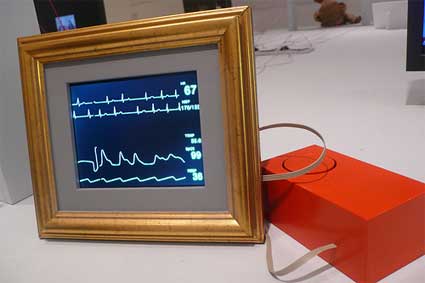Am I the only one noticing the unfortunate hairdo?
So that sounds like a legitimate question, but, alas, it ain't. In Arnold's case, it was a statement of surprise at what his brother told him. (Like cut your damn hair!) Most of the time when people say this, on some level, they don't get what you're saying or refuse to believe it.
Hence the reason for the blog. If you want to stop people from having this type of reaction all the time, you need to realize that it's not normally about what you say; it's about how you say it. There's an aphorism that comes to mind: "Life and death lie in the power of the tongue." (I could REALLY go somewhere with that statement, but I won't--because I'm classy like that.) That pretty much destroys the stupidity that is, "Stick and stones may break my bones, but words will never hurt me." Rubbish. Utter rubbish.
In a previous article, I talked about paying attention to your audience. Keep doing that. But in paying attention to them, you also need to pay attention to how you're saying what you're saying. Otherwise, they won't be your audience for very long.
Talking about how you say something deals with two things: diction and intonation. I know I promised not to scare you with my omniscience of linguistics, but I have to puff my chest a little sometimes. (Works for Pam Anderson.) You'll get over it. For this posting, we'll focus on diction.
So "diction" simply means the words that you choose. As in "diction-ary." Duh! So just like a dictionary has a bunch of words in it that have all types of meaning, your diction is a bunch of words that have all types of meanings and that you lob at people like you're Serena Williams playing against some poor sap that she's about to epically dominate:
 |
| Her She-Hulk legs are all the proof you need that she's bad. |
Peter: I have a question about this project you just gave me. I don't quite understand your instructions.
Xavier: The instructions were clear. An elementary-school student would understand them.
Peter: . . .
Yeah, this interaction was all about diction. Even if my intonation was appropriate, Peter would still have punched me in the face. Why? My word choice sucked out loud. "Elementary-school student?" Really? This was a poor interaction because my diction wasn't appropriate to the situation or the person in front of me.
The words you choose can have an influence on another person: either positive or negative. So you have to be mindful of what you say. Keep in mind that I'm not referring to political correctness, where you don't know whether to call someone black, African American, or colored. (If you are truly confused about that last word, please move to Antarctica. Naked.) We are talking about making sure your diction aligns with the needs of the person in front of you.
For example, I have a fairly strong personality. I'm not easily offended by much. So when people talk to me or have to provide me feedback, my expectation is that their language be straightforward and supported by facts. I don't need lead-up compliments; just give it to me. This is distinct from my partner, Steve. He appreciates feedback just like any rational person, but when providing it, he needs to understand the positive things he has done before talking about correction. Here's an example:
Steve to Xavier: You didn't pay this bill on time. What gives?
Xavier to Steve: I got a notice that the electric bill hasn't been paid yet. You're always on top of stuff like this, but I know you have been really busy with school lately. Have you had a chance to mail the payment?
Does it irritate me that I can't just come out like a fool on Steve? Sure, it does! In both of the cases, our lights are about to turned off, and the goal of the question is to find out how we can prevent that. The diction in both cases is noticeably different, and it should be. Steve and I have different communication needs. And in both cases, the chance that we would respond defensively to the question is low.
Diction becomes seriously important when it comes to business and dealing with customers. I talk about this extensively in my Customer Service Lost blog. Not paying attention to the words that your customer can understand will send them running faster than a crack-head to a drug dealer.
So if you want to avoid the following response from people:
WTF you say?!
Pay attention to your word choice.
This posting is not intended for prized MMA fighters, since they can pretty much say whatever they want and get away with it.







